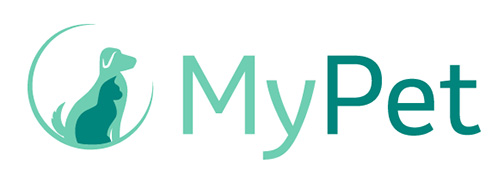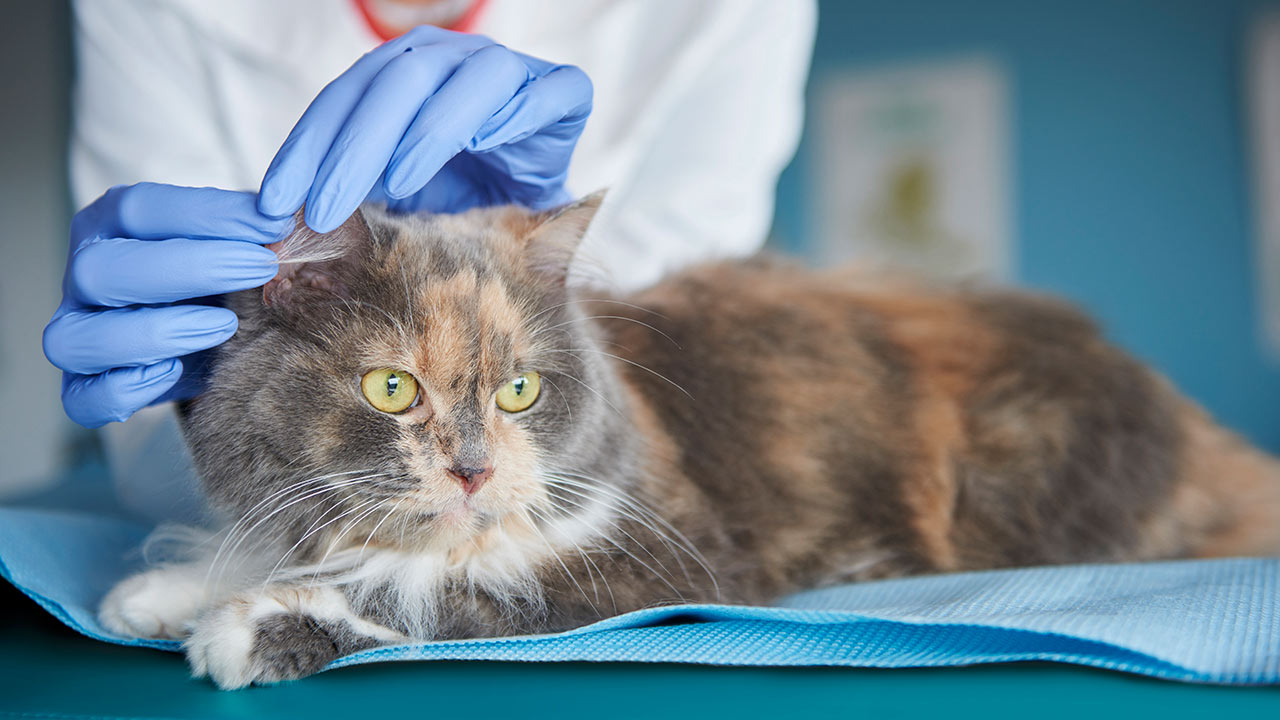We all love sharing our lives with our pets, whether it’s taking the dog for a long walk in the forest or petting our cat on the couch when it purrs in that special way. We feel this connection to our pets, and we only want what’s best for these animals of our choice. But the life of a beloved animal is not just a walk in the park. During the pet’s lifetime, we stumble upon diseases, accidents, and other unforeseen events we didn’t prepare for.
Where and who do we turn to, when our pets need help? Do we call the veterinarian or search the web for solutions that either include medical treatment or don’t.? In other words, if our pet needs effective disease prevention, do we prefer solutions with proven efficacy or something that is an effect of just nice storytelling?
Let’s be honest – there is no (non-scientific) “alternative medicine” like there is no “alternative physics.” There are only treatments that work or don’t. What is medicine, then? According to the Oxford Dictionary, it is the science or practice of diagnosing, treating, and preventing diseases. Like in other areas of human life, scientific activities include observation, experimentation, and testing theories against the evidence obtained. It is precisely what we do in medicine: we set hypotheses, test them, and apply results to the practice. The challenge with medicine (and biology in general) is that a single observation is not always accurate. For instance, if a person swallows a red pill, that person may be cured of specific symptoms. This does not guarantee that another person with the same symptoms who swallows the same pill will be cured. It is not always straightforward, and this is why we need doctors, research laboratories, universities, hospitals, and other institutions to manage such precious things as our pets’ health (and ours, of course).
The health of pets is a well-researched medical area. Many solutions, such as vaccines or medicines, have scientifically proven efficacy and safety and are approved by regulatory authorities and endorsed by medical communities. So, why do we still find information, articles, and books that try to convince us that we can treat or prevent pets’ diseases with “methods that lack a solid scientific basis. ? The answer most likely lies in two aspects of human nature. One is that we generally tend to follow the idea that there is a simple-to-understand solution, and second, we are afraid of things we do not comprehend. Therefore, it may look more accessible for many of us to mix some herbs in a pot and wash the dog, believing that it will scare fleas away, rather than use a medicine proven to kill fleas. For most of us, a flea-treating medicine can be unfamiliar and mysterious. But we trust cell phones, banks, computers, cars, and planes. They are complex; our lives depend on them, and in many instances, most of us do not know how they exactly work. They are made by people, just like medicines, with science and studies proving their efficacy and massive contribution to our society. So, why shouldn’t we trust them?
History shows that medicine is ever-evolving and that scientific methods have allowed enormous progress. Today, we witness the constant advances in diagnosis, treatment, and disease prevention every year. The same is true for pets as it is for humans. As fellow mammals, dogs and cats share the same biology, and our organisms work almost the same way. Our animals suffer from viral, bacterial, and parasitic diseases just like we do. The last decades have marked tremendous progress in preventing many health problems of dogs, cats and other animals that were severe and deadly before. In the 21st century, we enjoy unmatched progress and quality of veterinary care that we never enjoyed before.
A great example is the canine parvovirus, first recognized in 1978 as a new dog pathogen. At first, it was a deadly and fast-spreading disease. Canine parvovirus is responsible for either heart damage (myocarditis) or fatal damage of the intestine (gastroenteritis) in puppies, which could die rapidly if infected. Shortly after the canine parvovirus emergence, it became a pandemic and caused death in many dogs. Fortunately, vaccines were quickly made available to protect them, and the pathogen has been studied at length. Despite the persistence of the virus in the environment, we can protect dogs very well today thanks to effective vaccinations and early diagnosis. The most effective way to protect dogs from a disease caused by parvovirus is by vaccinating puppies and then boosting adult dogs with regular vaccines. Vacciness are highly effective in preventing illnesses and preventing infectious agent spread. So, we need to follow veterinarians’ advice.
Ectoparasitic medicines are Aanother illustration of significant medical advancements in pet protection. The last decade has brought unmatched progress in protection against flea and tick infestations. This is a great relief for many because ectoparasites have been a health problem for centuries, and due to the warming climate, ectoparasites are invading new areas and bringing new diseases that were not seen there before. Dogs and cats suffer from them in various ways. For instance, flea allergy dermatitis can be a severe problem, causing profound harm to an affected animal. Ticks are carriers of numerous harmful agents, such as babesia – a parasite that can cause bBabesiosis, which can harm dogs and cats. Therefore, preventing ticks from feeding on our pets is a vital health task. Just like we saw in the parvovirus outbreak in 1978 and following the development of effective vaccines, we can protect our pets from ectoparasites such as fleas and ticks with a simple treatment with a veterinarian’s help.
Vaccination is most likely one of the greatest successes of modern medicine and science. It is thus highly symbolic and can be considered the triumph of science. Hence, there has been much disinformation and confusion concerning vaccine safety. Its inception is usually attributed to the story of a paper written by Andrew Wakefield. It was on the lips of the scientific world after his publication linked autism in children to the MMR (measles, mumps, and rubella) combined vaccine. As a result of court proceedings, the article turned out to be a lie. Unethical practices in Wakefield’s research also came to light later. Wakefield was deprived of his license to practice for life after an unprecedented investigation and process in a court. Unfortunately, this publication became a starter for much misinformation about the danger of vaccinations. It led to a decrease in crucial vaccinations, and diseases we had under control started to re-emerge with a power unknown for decades.
To some extent, the misinformation was transferred to the pet world. International media have reported concerns about vaccinations in pets1. Usually, these concerns are based on social media feeds, web pages, or internet discussion forums. The most significant danger is that these texts seem genuine and scientific but are not. They often present “facts” with no references. Usually, these are just opinions, misinterpretations, or simple lies. The difference between a genuinely scientific publication and a social media feed is the rigorous process a publication in renowned and prestigious scientific journals must undergo. If someone decides to be a vaccination expert, they can start a website and publish whatever opinion someone pleases without any verification. For the average person, both sources may look equally valuable. Even more concerning, the website may look more convincing because it is written in a more familiar language and sometimes more straightforward to understand. As more people read and share the website, the higher it is in the search engines, and the snowball of disinformation expands. The scientist who spent years researching the subject made meticulous and critical assessments and analyses and responded to tough questions from reviewers only to publish a paper that is most likely not easily found on the general web and may rank lower than an anti-vaxxer website. The exposure of one versus the other is incomparable, but the grasp of proven facts and truth about the matter of health are incomparable, too.
There are ways to cope with this confusing information problem. One is simple: trust experts — veterinarians who are educated and have experience — to help you prevent diseases in your pets. The other, much harder but also more fun, is to educate ourselves. Do not be tempted by simple truths that fit “common sense.” In medicine, things often seem simple at first glance, but if we go deeper, they usually become complex. So, when seeing “clickbaity” information about some “alternative treatment,” we should always ask why and how these treatments work and whether they have been adequately evaluated. For instance, if the product offers flea and tick protection, there should always be an explanation of how it works, and if there is nothing behind it, it is likely fiction.
Registered medicines are carefully investigated to show their efficacy and safety. All results of the studies are summarized and publicly available. Medicines are also monitored by regulatory authorities to ensure that the product’s quality is constant, and no new factors influence the safety and efficacy of every registered medicine. The “alternative” medicines are not subjected to such deep investigations and monitoring, so in the best case, they are ineffective and, in the worst case, dangerous for our pets. Today, no new medicines are allowed to be sold in the market until proven they work as intended and safely.
The responsible care of our pets includes the use of medicines that work. Unscientific alternatives can be dangerous because they sometimes do not do what they are supposed to or can be dangerous themselves. Vaccinations are the only way to prevent many dogs and cats diseases, such as parvovirosis, leptospirosis, distemper, panleukopenia and several others. Not vaccinating our animals opens the door to the spreading of these deadly diseases and jeopardizes the lives and health of our furry friends and their two-legged companions. The same is true for antiparasitic treatments. Veterinarians are the best source of information and knowledge about responsible and effective care. We need to use them as often as necessary.
Here are five reasons why registered medicines are the right approach.
- Pet medicine is a well-researched medical area.
- Registered medicines are carefully investigated to show their efficacy and safety.
- Medicines are monitored by regulatory authorities to ensure that the quality of the product is constant.
- The “alternative” medicines are not subjected to such deep investigations and monitoring, so in the best case, they are ineffective and, in the worst case, dangerous for our pets.
- Today, no new medicines are allowed to be sold in the market until they are proven to work as intended and safely.
References:
- Hobson-West P. Vets and Vaccines: A Discursive Analysis of Pet Vaccine Critique. Front Vet Sci. 2022 Jun 9;9:868933. doi: 10.3389/fvets.2022.868933. PMID: 35754533; PMCID: PMC9218416.





